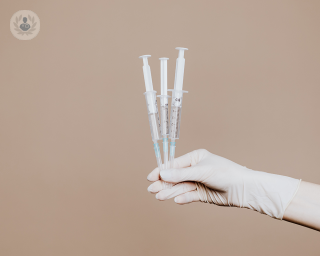Women's health
What are women's health problems?
Most of the same health issues that affect men, women can also experience. Additionally, however, there are certain issues that exclusively affect women. During their lifetime, women's reproductive systems go through extreme changes, that can greatly impact their health and increase their risk of developing or experiencing certain health concerns at different stages.

What are some health concerns that only affect women?
Unique health issues that only affect women include:
Reproductive health issues: These may include issues with hormone production and fertility, which can affect a woman’s chances of having a baby. Also, problems associated with periods like premenstrual syndrome (PMS) and premenstrual dysphoric disorder (PMDD), can lead to anxiety, depression, discomfort, and pain prior to menstruation. Unsafe sex can also impact a woman’s reproductive health and overall general health, increasing the chances of contracting HIV or an STI.
Menopause refers to the period when the female body’s reproductive system does not release eggs to be fertilised and the uterus no longer prepares itself for the implantation of a fertilised egg. During this time the hormone levels (oestrogen and progesterone) fluctuate and can cause hot flashes, depression, irregular menstruation, insomnia, mood changes, and changes in weight and physical appearance.
Material health issues: These relate to issues that may arise during or as a result of pregnancy. In developed countries, advancements in technologies have reduced the dangerous of complications due to pregnancy or childbirth. In countries, where the death rate is high due to complications, most of these deaths could be prevented if the correct services were available.
Postpartum depression occurs immediately or shortly after a woman gives birth. A common feeling of sadness or depression is experienced by those who give birth or suffer a miscarriage. Postpartum depression is a serious issue that requires medical treatment to support the struggling mother.
Conditions of the female organs: Cancers of the breast and cervix are the most common cancers that present in women, with ovarian and uterine cancers also being prevalent. Other conditions such as prolapse can affect the female organs.
What factors affect women’s health or can lead to illness?
Factors influencing a woman’s well-being may be either personal or environmental.
Personal factors relate to the individual and can include:
- Lifestyle
- Genetics
- Hormone imbalances
- Age
- Ethnicity
- Family’s medical history
Environmental factors can be, for example, where the woman grows up, where she lives and what she works as. Additionally, the services and basic amenities can impact the quality of health care available and in turn the woman’s health.
What are common signs in women of a health disorder?
There is a wide variety of conditions that can affect women, and as it ultimately depends on the individual, it is difficult to determine specific signs of health disorders. However, some common signs that there may be a health issue could be:
- Weight change
- Change in appearance of hair and skin
- Mood shift
- Change in sleeping pattern
- Change in menstrual cycle
- Depression, anxiety, or lethargy
What treatments can women avail of?
Thankfully, most issues that affect women are treatable if detected early enough. Pharmaceutical treatments are widely used. Anti-depressants are used to combat postpartum and general depression, PMDD, and even menopause in some cases. Hormone replacement therapy (HRT) is used during menopause to balance the radical change in hormone production and to lessen the severity of the symptoms.
How can women’s health be improved?
Although women can take some incitive by ensuring they lead a healthy lifestyle, it is vital that the most basic services are provided to women in order to prevent health issues from becoming serious as soon as possible. As well as for bone density, regular screenings for breast and cervical cancers can greatly improve women’s health. These cancers need to be detected early so they can be treated. Women’s health is often misunderstood and many women don’t have access to the medical attention they need, due to a lack of information. Education and a greater involvement of women in politics can impact the importance given to women’s health. A GP will refer to a gynaecologist to treat any women's health issues.
















